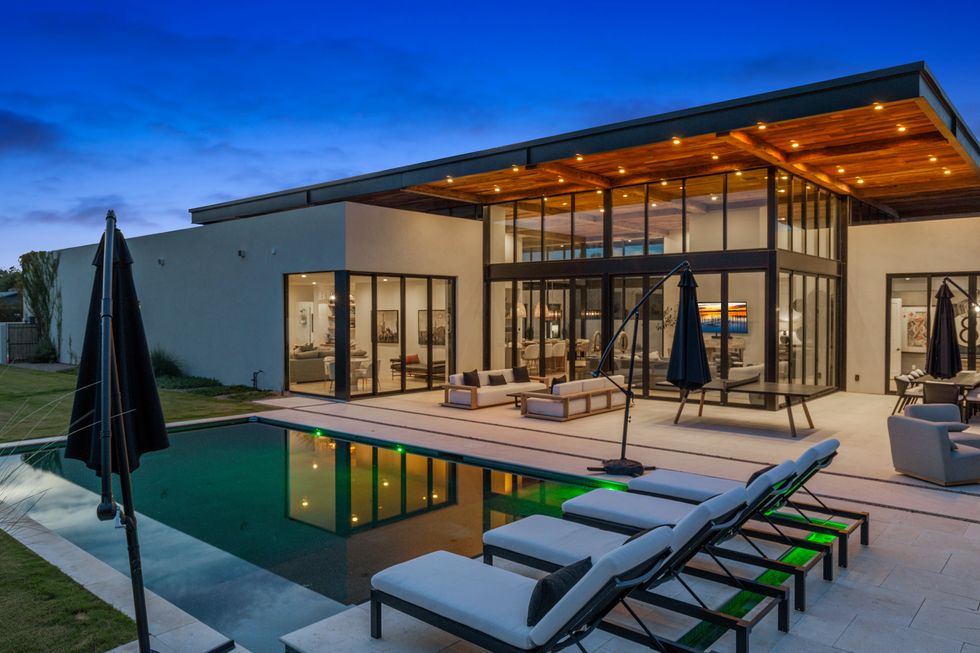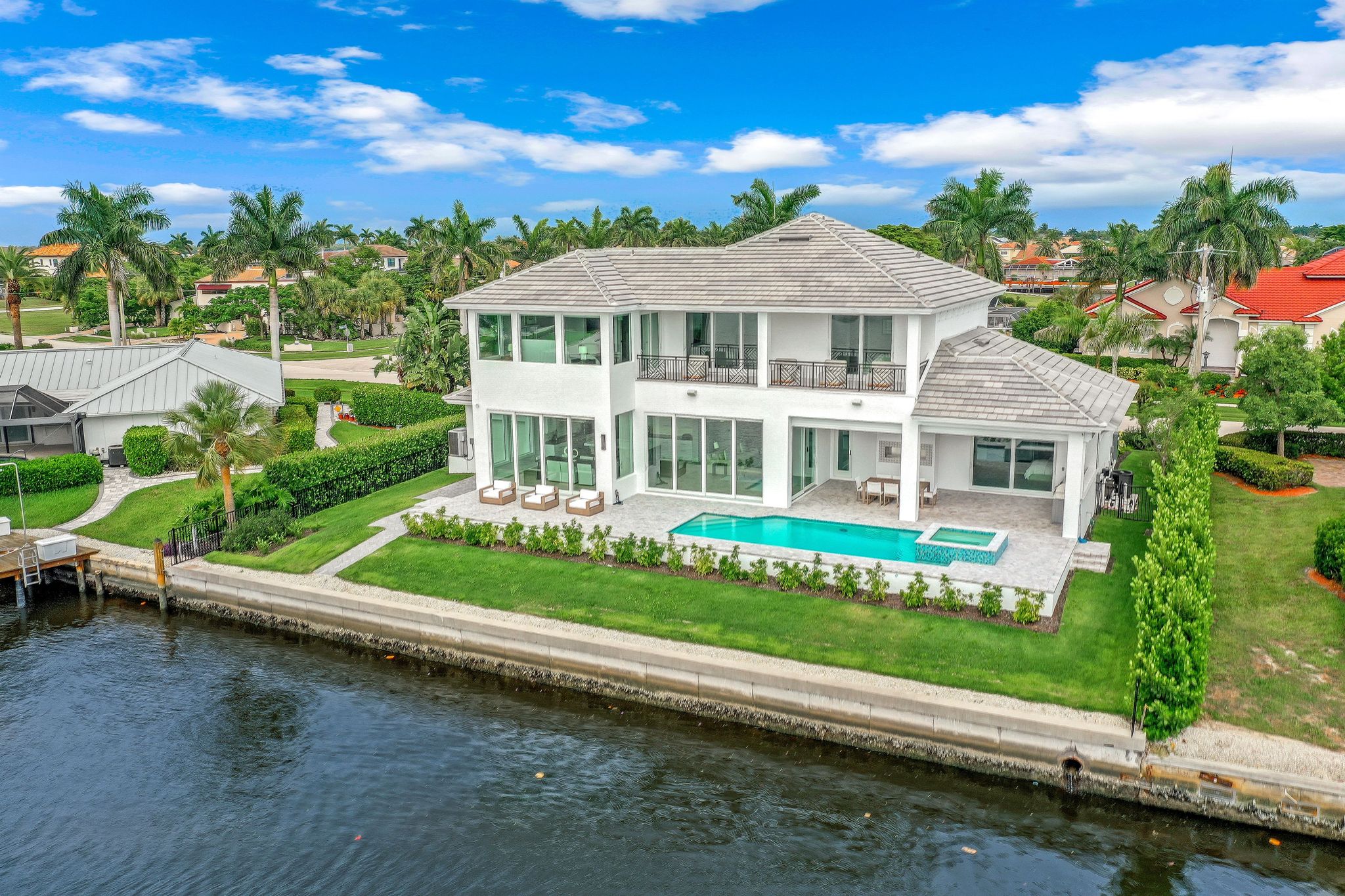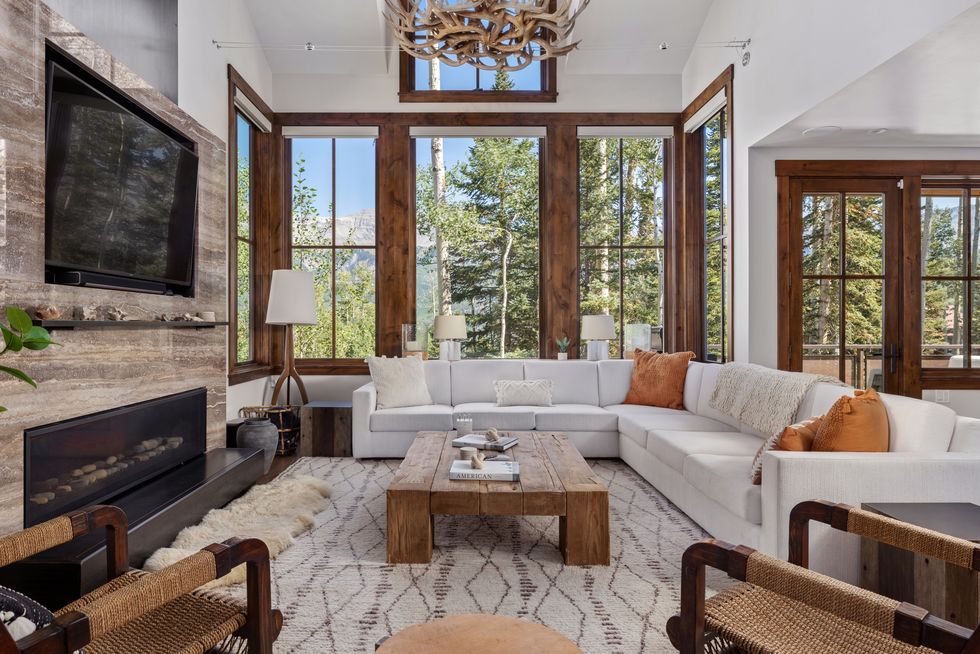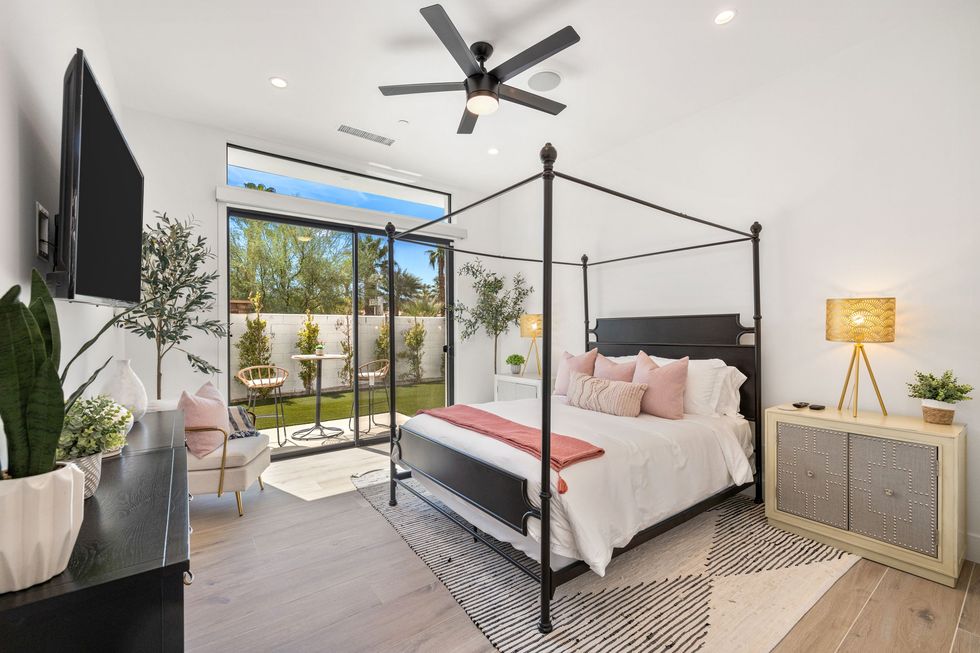Alvaro Ortega always wanted to own a vacation home in Indian Wells, a destination he frequently escapes to from Long Beach for relaxation with friends and family. The father of two young children says he’d flirted with the idea of buying in the sunny Southern California resort town since 2014, but rising real estate prices kept his dream out of reach.
Then, Ortega heard about a vacation home brokerage company called Pacaso offering a chance to co-own a piece of a luxurious 4,000-square-foot home at a fraction of the cost. He bought two shares in December 2021 and says he and his family can hardly wait between their visits to the desert.
“The first time we toured the house, we were impressed with the design and attention to detail,” Ortega says. “We loved the spacious and private backyard with pool, hot tub, fireplace, outdoor kitchen, and views of the mountains. Even though we are just two hours away, the home gives us the opportunity to disconnect from our normal busy lives and connect as a family.”
Despite what sounds like an innovative and more accessible way for buyers like Ortega to afford getaways in desirable destinations, fractional vacation home ownership has become a real estate piñata targeted by residents and city governments in such destinations as Carmel-by-the-Sea, California; Nantucket, Massachusetts; and Sullivan’s Island, South Carolina. Ortega thinks these towns and residents attacking fractional home ownership misunderstand the business model.
“We are families just like yours,” Ortega says. “In less than a year, we have become great friends with the neighbors, and our children have local friends to play with every time we are there. I’ve asked our new friends if they’ve had any issues with any of the owners, and they said, ‘Never.’”
Pacaso co-founder and CEO Austin Allison doesn’t understand the anger over making it easier for people to buy a vacation home. He blames much of the pent-up frustration on the nationwide ire over short-term renters through companies like Airbnb and Vrbo. The horror stories of destroyed houses and endless parties have neighborhoods on edge.
“They think there is going to be a revolving door of frat parties,” Allison says. “But [our] co-owners are not 21-year-old short-term renters who have no accountability. They are homeowners with skin in the game. All these fears of them being terrible and irresponsible people are not justified.”
The term fractional ownership is relatively new, but the concept has been around for decades. “Group ownership is not a new concept or uncommon,” says Andy Sirkin, a lawyer who specializes in writing agreements for shared assets, including second homes. He estimates that around 20 percent of homes in the U.S. are already co-owned in trusts, nonprofits, and other legal arrangements.
However, what is new is that companies such as Pacaso, Lifestyle Asset Group, and Adrian Leeds Group have streamlined the process, lowering ownership costs and providing a turn-key experience. Whether you call it fractional, shared, or co-owned, the idea is simple: Companies purchase homes and apartments in desirable, often expensive areas, then refurbish, furnish, and decorate them. They divide the property into individual shares, usually between eight and 12, and sell them to individuals or families.
Once all shares are sold, a legal framework for the co-ownership is created, such as a limited liability corporation (LLC), which takes title on the deed. Each co-owner is a member-partner of the LLC, and the company retains no ownership of the home but becomes the property manager on the LLC’s behalf: paying bills, scheduling repairs, and facilitating schedules for usage of the home. According to Pacaso, on average, owners tend to visit their homes about six to seven times each year for about a week at a time. Owners who purchase through Pacaso and Adrian Leeds Group are prohibited from renting out their homes.
Pacaso claims their business model positively impacts communities and neighborhoods. According to a 2022 report from EBP, a national economics firm hired by Pacaso to conduct a study to understand the economic impact of its co-ownership model in five markets, the average second home sits empty for 83 percent of the year, but a Pacaso-managed home is occupied 89 percent of the year on average.
The report also revealed that the average Pacaso home generates an average of $2,400 more in state revenue and $1,400 more in local revenue per home — 10 times more than a traditional second home. Pacaso says it doesn’t compete with standard workforce housing because it purchases only high-end luxury homes and consolidates eight buyers under one roof.
“Co-owners are invested in the home,” says Karla Jones of Lifestyle Asset Group, which introduced its fractional ownership model of luxury second homes back in 2013. “They care about their neighbors and community and spend money in their community, including their prorated share of HOA fees that cover amenities and common area costs of the community, week after week, year after year.”
Why are an increasing number of communities opposing these companies and business arrangements? In a word: timeshare. The old-school, much-maligned concept of resorts selling blocks of time for future visits that was popularized in the 1980s and ’90s is seemingly at the core of the battles across the United States. Back then, buying a timeshare meant purchasing a specific chunk of the calendar, usually one to two weeks per year, which gained travelers access to a condo in a large complex but not deeded ownership of a specific unit. Today, the definition of timeshare has evolved to include more sophisticated offerings.
It’s the revolving occupancy that seems to be the flash point for many neighbors, with co-ownership schemes like Pacaso’s getting lumped in with the likes of Airbnb and Vrbo, which are banned from renting for less than 30 days in many of the same destinations opposing the fractional home ownership model.
“If a community does not allow weekly renters, that is perhaps a more valid reason to deny co-ownership,” Jones says. “These communities tend to not like seeing suitcases rolling in and out of the neighborhood each week, but a 30-day renter has behaviors similar to our co-owners. They take care of the property and develop relationships in the community.”
For those in the industry, labeling co-ownerships as timeshares feels unjust. In tony St. Helena in California’s Napa Valley, about half the homes are owned in setups like LLCs that allow for multiple owners, according to county tax assessor records in 2022. However, the city declared that Pacaso’s model was a timeshare in 2020. Meanwhile, the coastal city of Carmel-by-the-Sea is similarly trying to expand its definition of timeshare to include fractional home ownership.
Sirkin says a big contributor to the confusion is that communities are inconsistent in policy and messaging. “Their reactions are legitimate if they come from the heart, that they really want people in second homes to become part of the community,” he says. “But that argument goes out the window when they are okay with one billionaire showing up two weeks a year but not okay with a group of owners who want to be there and will show up week after week, year after year.”
For Sonoma resident Pat Smidores, it was the notion of Silicon Valley moving onto her cul-de-sac that prompted her to take action with StopPacasoNOW, a grassroots alliance imploring communities and their city councils to ban companies like Pacaso from moving into their residential neighborhoods. She says she is not against friends and families owning a home together but takes issue with corporations being involved in the process.
“Pacaso says their goal is for owners to be part of the neighborhood, but that’s not the case,” Smidores attests. “We don’t know them. They aren’t our neighbors. We had a neighbor die on our street. There was a funeral. They don’t care.”
Adrian Leeds, founder of Paris-based real estate agency Adrian Leeds Group, not only helps buyers navigate ownerships of unique apartments in destinations like Paris and the Côte d’Azur, but she’s also helped existing homeowners turn their houses into fractional-ownership opportunities. Leeds believes she’s helping clients fulfill bucket-list dreams of owning a home in France.
“The average person can’t afford this or manage it, and chateau-in-France dreams quickly become nightmares,” Leeds says. “When you buy into a house that’s professionally managed by people who know what they’re doing, a lot of problems go away.”
Patrick Rhodes, one of Leeds’ clients, bought shares in apartments in Paris and the village of Villefranche-sur-Mer, which has allowed him to spend longer periods of time in France, where his mother was born. Though he loves visiting his vacation homes, Rhodes says he’s sympathetic to neighbors reluctant to embrace them. “I can understand where they are coming from,” he notes. “When we are staying in either of our places in France, we try to be respectful to the rest of the residents who live there year-round.”
For now, the debate continues. StopPacasoNOW is widening its influence around the country, and companies like Pacaso, Lifestyle Asset Group, and Adrian Leeds Group have no shortage of properties and inquiries about them on their websites. Meanwhile, Utah's state legislature recently passed SB 271, recognizing co-ownership at the state level and allowing a Pacaso-style second home co-ownership model to operate throughout the Beehive State.
Allison, the co-founder and CEO of Pacaso, thinks navigating legal red tape is simply part of the process. “Any time you’re doing something meaningful or different, you’ll get resistance,” he says. “I’d be worried if we didn’t. It wasn’t that long ago that electric vehicles were a laughingstock. Now, they’re widely accepted.”
Kimberley Lovato is a San Francisco-based writer who has contributed to The New York Times, National Geographic Traveler, AARP, and Virtuoso.
Get Shondaland directly in your inbox: SUBSCRIBE TODAY


















